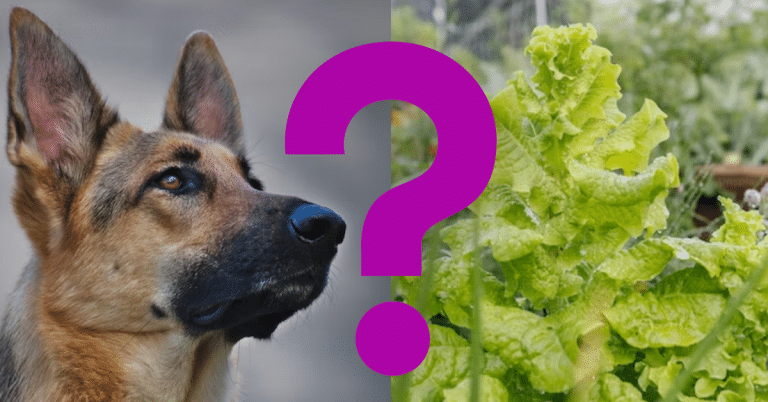Can Dogs Eat Bell Peppers? A Vet’s Opinion

Bell peppers can be healthy and tasty for humans, but can you feed bell peppers to your dog?
Bell peppers are safe for dogs to consume in moderation. Bell peppers are a nutritious treat for your dog since they are low in calories, vitamins, and antioxidants.
Benefits Of Bell Peppers For Dogs
The following are some further details on the potential advantages of bell peppers for dogs:
- High in Vitamins: Bell peppers contain vitamins A, C, and E. The immune system, the skin, and the eyesight are all supported by vitamin A. Antioxidant vitamin C strengthens the immune system. Vitamin E is necessary for healthy skin and coat and can help boost immunological function.
- Antioxidants: Beta-carotene, lutein, and zeaxanthin are significant antioxidants in bell peppers. These substances aid in defending cells against the harm of free radicals and unstable chemicals that can lead to inflammation, cancer, and other medical issues.
- Bell peppers are low in calories, making them a wonderful treat for dogs that need to keep their weight in check. The 30 calories in one medium-sized bell pepper make it a low-calorie snack.
- Bell peppers are a vital source of fiber, which can aid in controlling digestion and preventing constipation.
- Immune System Booster: Bell peppers’ vitamins and antioxidants can enhance a dog’s immune system and advance its general health and well-being.
- Natural anti-inflammatory substances found in bell peppers may help the body fight inflammation and ease the symptoms of allergies and rheumatoid arthritis, among other illnesses.
- Bell peppers are abundant in vitamin C and other antioxidants, which may improve heart health by lowering the risk of heart disease and stroke.
- Bell peppers’ high water content can help your dog stay hydrated and prevent dehydration, especially in hot weather.
- Bell peppers’ high fiber content can help your dog’s digestive tract function normally, reduce constipation, and encourage bowel movements.
- Bell peppers have a low glycemic index, so they digest slowly and can help control blood sugar levels. As a result, they constitute a healthy treatment choice for dogs with diabetes or who are at risk of getting it.
- Bell peppers include vitamins and minerals like magnesium and vitamin K that are crucial for creating and maintaining strong, healthy bones.
- According to some research, the antioxidants and anti-inflammatory components in bell peppers may have anti-cancer qualities and help prevent the development of some forms of cancer.
- Supports Healthy Skin and Coat: Bell peppers’ vitamins and antioxidants can help dogs have healthy skin and coats, lowering their chance of developing skin issues and ensuring they look and feel their best.
- Giving your dog various healthful foods, such as bell peppers, will help give a balanced and nutritious diet and prevent boredom from repeatedly eating the same old things.
When included in a balanced diet, bell peppers can offer a variety of possible health advantages to dogs. However, before making any significant dietary changes for your dog, it’s crucial to introduce new foods gradually and moderately and to see your doctor first.

How To Safely Give Bell Peppers To Dogs?
It’s essential to feed your dog bell peppers securely and responsibly. Here are some guidelines for feeding your dog bell peppers without harm:
- Wash well: Before giving your dog bell peppers, wash them well to eliminate any possible dirt, pesticides, or other toxins.
- Remove Seeds and Stem: When giving your dog a bell pepper, remove the seeds and stem since they can be difficult for dogs to digest and may lead to gastrointestinal issues.
- To make the bell pepper simpler for your dog to consume and digest, cut it into small, bite-sized pieces.
- Carefully and in modest amounts, as abrupt dietary changes might disturb their digestive system. Increase the amount of bell pepper over time by starting with a little bit at first.
- Keep an eye out for allergic reactions. When giving your dog bell peppers, watch for adverse response symptoms, including itching, hives, or vomiting. Stop feeding your dog bell peppers if they respond allergically, and call your veterinarian.
- Moderation is Important: Even though they can be a beneficial supplement to your dog’s diet, bell peppers should only be given occasionally and as a part of a balanced diet. Any food in excess, especially bell peppers, can adversely affect one’s health.
In particular, if your dog has any underlying medical concerns or dietary restrictions, always check with your veterinarian before making any dietary modifications or giving them new foods.
Will Bell Peppers Make A Dog Sick?
Generally, bell peppers are acceptable to eat in moderation as part of a balanced diet and are not hazardous to dogs. In contrast, certain dogs could be more sensitive to specific foods, such as bell peppers, and they might exhibit digestive problems or other symptoms from eating those foods. Some dogs may be allergic to bell peppers, producing itching, rashes, or vomiting symptoms. However, giving your dog too much bell pepper or giving it to them too soon might result in digestive issues, including diarrhea, vomiting, or bloating.
Bell peppers should be introduced to your dog gradually and in moderate amounts. It would help if you also kept an eye out for any symptoms of digestive problems or allergic responses in your dog. If your dog has symptoms after eating bell peppers, stop giving them to your dog and speak with your veterinarian. In conclusion, while it’s typically safe for dogs to consume bell peppers in moderation, it’s crucial to watch your dog’s behavior and offer them modest quantities until you’re sure they can eat this food without experiencing any adverse effects.

Vet’s Summary
In conclusion, bell peppers can enhance a dog’s health in several ways, including boosting their immune system, providing hydration, assisting with digestion, lowering blood sugar, supporting strong bones, and fostering good skin and coat. But it’s crucial to give your dog bell peppers in moderation and responsibly and safely. This entails giving them a good wash, taking off the seeds and stem, chopping them into little pieces, introducing them gradually, watching for allergic responses, and serving them as a balanced meal.
Another option to assist your dog’s digestive health and enhance its general well-being is to give them probiotics. Probiotics are good bacteria that reside in the gut and support a robust immune system and a healthy digestive tract. Probiotics can aid your dog’s intestinal health, avoid stomach problems, and strengthen its immune system. Before introducing probiotics to your dog’s food, please consult your veterinarian to confirm that it is secure and suitable for their unique requirements.
Videos To Watch
Here are videos to help you discover if your dog can eat bell pepper:






